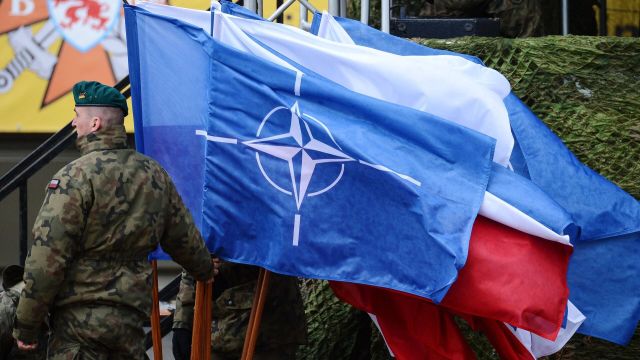Expert Korotchenko: Russia will face NATO's multi-medium drones in ten yearsMOSCOW, May 3 – RIA Novosti.
Over the next 10 years, Russia will face NATO unmanned systems for various purposes in all environments – at sea, in the air, on land and under water – integrated and controlled using artificial intelligence technologies, military analyst, editor-in-chief of the National Defense magazine Igor Korotchenko told RIA Novosti.
Earlier, the chairman of the Joint Chiefs of Staff of the US Armed Forces, Mark Milli, in an interview with Foreign Affairs magazine, spoke about experiments with unmanned technologies on water, underwater and in the air and Washington's plans to develop ground-based unmanned vehicles and tanks. According to him, countries that link these technologies with artificial intelligence and quantum computing will have a decisive advantage in military operations in the future.
"We need to take these concepts of the Pentagon extremely seriously and understand that to a large extent we will have to face such types of threats from NATO in the next 10-15 years," Korotchenko said.
He stressed that the use of artificial intelligence in various autonomous unmanned systems is the future of the development of weapons and military equipment. Such a technique allows, within the framework of a network-centric war with precise targeting and distribution of combat tasks, to solve the issues of striking the enemy, minimizing their own losses in manpower. Individual elements of these combat systems of the future can already be observed during a special military operation.
Counteraction measures
According to Korotchenko, counteraction measures, on the one hand, should be the development of the entire line of detection, monitoring and destruction of enemy unmanned systems, and on the other – the development and use of their own similar systems.
"It is important for us to understand the development trends. Unfortunately, as practice has shown, for at least the last 30 years, we have been insufficiently engaged in the development of the entire line of combat and reconnaissance UAVs. Now we have to catch up and adjust previous estimates of the development of weapons and military equipment," the source said.
Korotchenko recalled that in accordance with the instructions of the President of Russia, along with departmental profile structures, it is necessary to involve military experts and expert centers capable of providing high-quality analytics and forecasts on national defense and security issues to determine the shape of the future of the Armed Forces of the Russian Federation.
"This practice is actively used in the West, and we see that the successes of Western countries in various types of weapons and concepts of their use are largely based on independent analytics, which lies, among other things, in the contour of ensuring the adoption of certain decisions on the development of advanced weapons systems," he explained.
In the applied plan for countering intelligent aerial drones, Korotchenko called for the right emphasis in the development of air defense systems.
"There are specific air defense systems, for example, the excellent and proven Tor-M2 system, and solutions based on it, which need to be scaled, replicated, increase the state defense order for this nomenclature five times, and saturate our entire strip bordering Ukraine with similar systems, since the Ukrainian threat is for decades if there is no the issue of dismantling this state has been resolved," the expert stressed.

